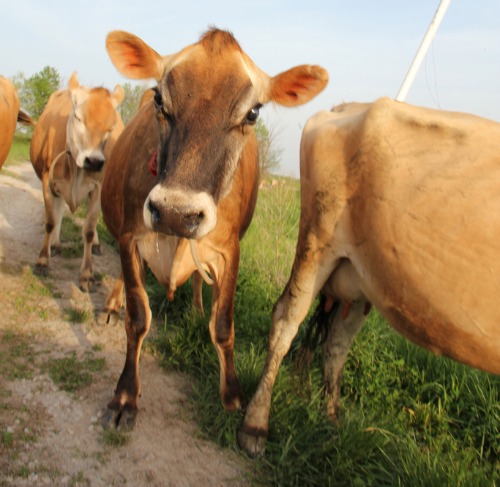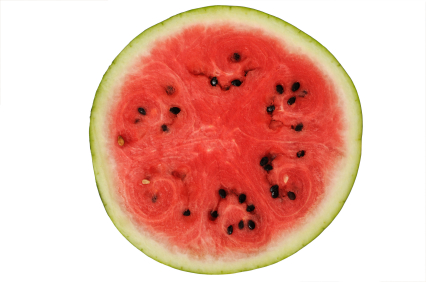People opt for organically-farmed food for all different reasons, but here's one of the more compelling ones we've seen: Agricultural chemicals can make watermelons explode.
Chinese watermelon crops just had an unfortunate run-in with the growth accelerator forchlorfenuron, which makes plants' cells divide faster to pump up growth rates. Supposedly forchlorfenuron can bump up harvest schedules by two weeks and increase fruit size by 20 percent. But if farmers spray too late or in the wrong conditions, acres of melons explode like "land mines" in a scene of carnage that one farmer said haunted his dreams.
This is, of course, not the first food safety issue China has faced recently, although it may be the only one to be prefigured by a racist '80s comedian. China has also been flooded with food contaminated by melamine, cadmium, bleach, borax, dye, and birth control chemicals — all because of lax or corrupt production practices, intended to make food look better or stretch farther for lower cost.
The Chinese government, at first secretive (and vengeful) about food safety concerns, is now encouraging the media's "watchdog" role in exposing tainted food. And the media is making good:
In the past week, the People's Daily website has run stories of human birth control chemicals being used on cucumber plants in Xian, China Daily has reported Sichuan peppers releasing red dye in water, and the Sina news portal revealed that barite powder had been injected into chickens in Guizhou to increase their weight.
More alarming still was a study by researchers at Nanjing Agricultural University that estimated a tenth of China's rice may be tainted with the cadmium, a heavy metal that can affect the nervous system. This caused a stir when it was published earlier this year in the pioneering Caixin magazine.
Activists aren't convinced that the government's pro-investigation stance will hold, though. "The government is aware of the environmental problems caused by chemical fertiliser, but they are also concerned about food output," said Pan Jing of Greenpeace.




